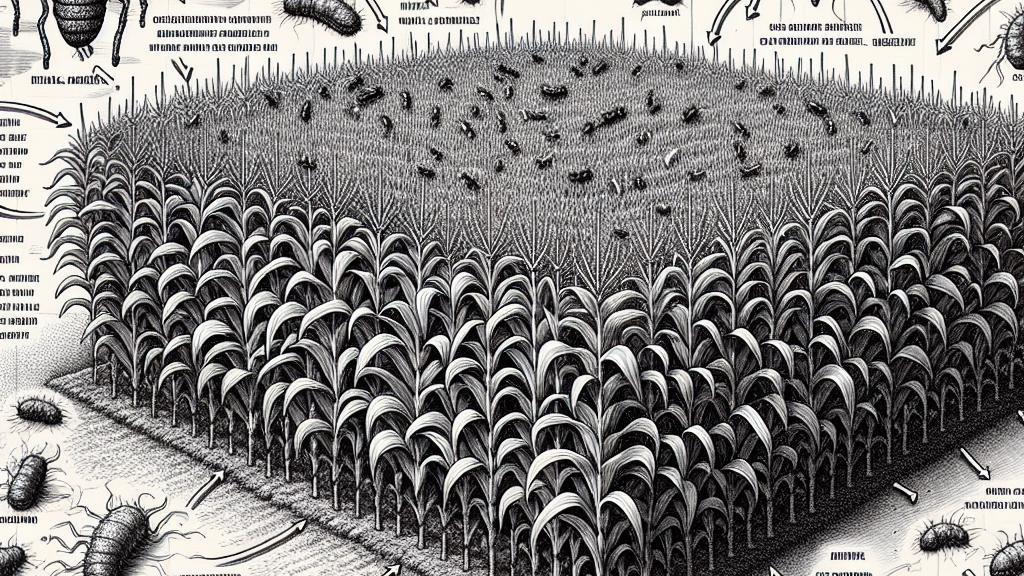Balancing Beneficial and Harmful Fungi in Sweet Corn Cultivation
Overview
- Delve into the fascinating dynamics between beneficial and detrimental fungi in sweet corn farming.
- Uncover how specific genetic traits can enhance pest control while maintaining disease resistance.
- Discover innovative practices that are transforming organic farming for sweet corn producers.

The Complexity of Fungal Relationships
In the vibrant agricultural heart of Peoria, Illinois, researchers from the Agricultural Research Service have embarked on a remarkable journey into the intricate relationships that define sweet corn cultivation. Their focus centers on Beauveria bassiana, a remarkable fungus renowned for its ability to target pests such as the notorious fall armyworm. However, a twist unfolds: certain sweet corn varieties have developed robust defenses that may lessen the effectiveness of this beneficial ally. Imagine a scenario where nature’s intended helpers might unintentionally become obstacles! This delicate balance not only calls for a deeper understanding of how to combat fungal diseases but also emphasizes the need for strategic pest management that embraces the intricacies of these fungal interactions.
Harnessing Genetic Potential for Optimal Growth
The insights gained from the research are groundbreaking. The scientists discovered that certain Fusarium-resistant sweet corn lines reacted variably to treatments with Beauveria bassiana. For example, certain hybrids achieved an astonishing 58% mortality rate among caterpillars, showcasing their dual prowess in resisting disease while effectively managing pests. Conversely, some lines, despite being resistant to Foliar diseases, showed increased vulnerability to caterpillar attacks. This observation leads to an exciting possibility: through careful breeding practices, farmers can cultivate sweet corn varieties that carry a unique blend of genes, empowering them to withstand both fungal infections and insect predation. These genetic combinations could revolutionize how we approach sweet corn cultivation, marrying resilience with productivity.
A New Era for Organic Farming Practices
The implications of these findings are profound, especially for organic farmers who often grapple with stringent regulations barring the use of synthetic pesticides. Envision a future where sweet corn varieties thrive on natural pest control methods, resulting in robust yields and minimal environmental impact. By pinpointing hybrids that elegantly balance disease resistance and pest management, growers can significantly decrease their dependency on chemical solutions while enhancing overall crop health. This dual benefit represents a pivotal shift in agricultural practices, whereby the harmony of ecosystem health and agricultural success coalesce. The fusion of scientific discovery, genetic advancement, and sustainable farming techniques can lead to a flourishing agricultural landscape, where the balance of nature is respected, and organic farming thrives authentically.

Loading...